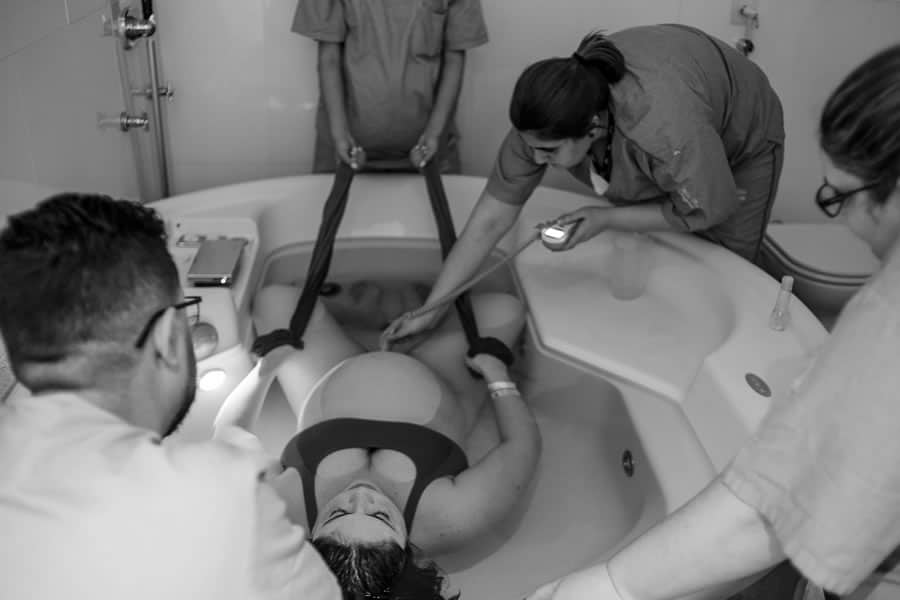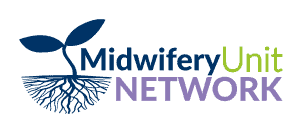E-Learning

E-Learning Module 1
Midwifery Units: An Introduction
View
Module 1: Midwifery Units: an introduction
Module description
This module is an introduction to midwifery units (MU) and their purpose, showcasing current research on midwifery units which has been conducted in England. The module aims to support individuals such as service users, midwives, doctors, managers and many more who are working to influence and promote the development of midwifery units.
Key Learning Outcomes:
- Describe the key features of a midwifery unit
- Describe current maternity services, policies and provision of MU’s
- Use evidence to explain the impact of developing more MU’s in Europe
- Highlight the key components of a well performing MU
- Outline the challenges that midwives face and provide practical solutions for improvement
This module consists of an E-Learning video (53 minutes), reflective exercises, additional material and an assessment which all together contributes to a minimum of 6 hours of learning.

E-Learning Module 2
Personalised care and partnership in decision making
View
Module 2: Personalised care and partnership in decision making
Module description
This module focuses on the concepts of women’s autonomy, personalised care and partnership in decision making. It guides you through the historical factors that led to impersonal maternity care systems, whilst referring to legislation that empowers women to survive, thrive and transform. The module addresses the management of risk and the organisational culture in maternity care. In addition, it refers to and explores continuity of carer as part of the solution to midwifery units, describing the benefit of personalised care plans using successful real-life personalised birth stories.
Key learning outcomes:
- Understand the importance of maternity care experiences for women and their families
- Describe the ethical and legal principles underpinning women’s autonomy
- Reflect on the impact of risk culture
- Reflect on the impact of organisational culture
- Understand how continuity of carer is part of the solution
- Practical advice on how to develop a personalised care plan tool
This module consists of an E-Learning video (1 hour), reflective exercises, additional material and an assessment which all together contributes to a minimum of 6 hours of learning.

E-Learning Module 3
Optimal Intrapartum Care: how to safely reduce unnecessary interventions
View
Module 3: Optimal Intrapartum Care: how to safely reduce unnecessary interventions
This module focuses on the foundations for optimal intrapartum care and optimal birth. It explores the shared philosophies that promote safety and identifies evidence-based strategies to optimise birth outcomes through an understanding of pragmatic and safe approaches to reducing unnecessary interventions in maternity care.
Key Learning Outcomes:
- Understand maternity unit culture and its impact on the care received
- Describe the boundaries of normality for labour and birth
- Describe and implement the 10 Pillars of Optimal Intrapartum Care
This module consists of an E-Learning video (1 hour and 5 minutes), reflective exercises, additional material and an assessment which all together contributes to a minimum of 6 hours of learning.

E-Learning Module 4
Intermittent ‘intelligent’ auscultation
Temporarily unavailable
View
Module 4: Intermittent ‘intelligent’ auscultation
Temporarily unavailable
Module Description
This is a practical, interactive module which focuses on the appropriate use of intermittent auscultation, also known as intelligent auscultation (IA). The learning material is underpinned by evidence-based research and explores the importance of intermittent auscultation and the rationale for its use for women with uncomplicated pregnancies.
Key learning outcomes
- Understand the physiology of the fetal heart and types of hypoxia
- Describe the key facts and evidence of IA in relation to women with uncomplicated pregnancies
- Increase knowledge on abnormal IA findings and how to act on them
- Identify common mistakes and tips on how to avoid them
This module consists of an E-Learning video (42 minutes), reflective exercises, additional material and an assessment which all together contributes to a minimum of 4 hours of learning.
